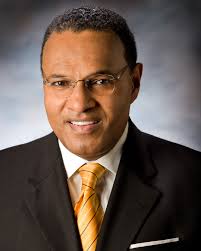In light of the Baltimore protests, President Hrabowski penned an essay in Inside Higher Ed about the importance of UMBC’s continued work in the community and the need for ongoing conversations with students about confronting systematic injustice and inequality.
 Dr. Hrabowski began by sharing his experience in the Children’s March and how it developed into his life’s work of making education accessible to all Americans. He drew comparisons to the Baltimore protests, saying that the most important work of fighting issues of poverty and injustice is yet to come.
Dr. Hrabowski began by sharing his experience in the Children’s March and how it developed into his life’s work of making education accessible to all Americans. He drew comparisons to the Baltimore protests, saying that the most important work of fighting issues of poverty and injustice is yet to come.
Sharing examples of UMBC’s commitment to Baltimore city through initiatives such as The Choice Program, Dr. Hrabowski emphasized the role of universities as “community anchors, educators and researchers.” “The future will depend heavily on universities– not only the policies we shape but the leaders we produce,” he wrote.
He also called for higher education institutions to encourage its students to connect with people from different backgrounds and circumstances and to apply their classroom discussions of justice, economics, and history to work in the community. “We are having renewed conversations on our campus about how we can deepen our ties to the community and keep issues of inequality and inequity at the forefront of our teaching and service,” he shared.
To read the article titled “After the Cameras Leave” on Inside Higher Ed, click here.
Dr. Hrabowski also participated in a discussion with New Jersey Senator Cory Booker at the Urban Institute on Wednesday, May 18. The conversation centered around how to reduce racial opportunity gaps for boy and men of color and create trust between the police and impoverished communities.
Dr. Hrabowski spoke about the need to support boys and men of color and how The Choice Program at UMBC is one strategy for increasing trust. “We need many more programs like this so that before the difficulty arises, these people know each other,” he said. “There’s a role for places like universities to play in building these intervention strategies that can build trust.”
Click here to read excerpts from the conversation at the Urban Institute.
Tags: Hrabowski
